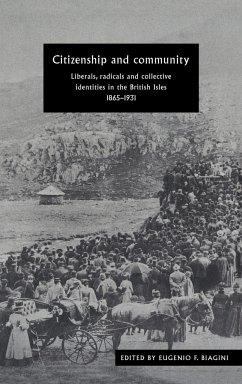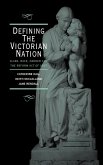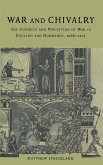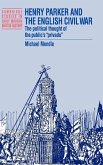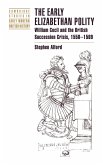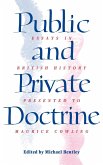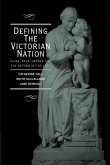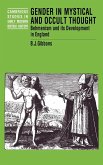In 1883 the radical journalist W. E. Adams described community self-government as 'the essence of all political liberalism that is worthy of the name'. This collaborative volume of essays enlarges upon Adams' thesis, applying it to the study of various 'currents of radicalism' in Britain and Ireland, and ranging from Victorian advanced liberals to Irish and Welsh socialists in the 1920s. Citizenship and Community explores the links between liberalism, social democracy and nationalism within the framework of classical republican ideals of 'civic virtue' and active citizenship. Its strong comparative emphasis breaks down conventional views of the state, and focuses attention on the regions of Britain, revealing how different forms of collective identity interacted in popular attitudes to political and social debates at a national level.
Table of contents:
Introduction: Citizenship, liberty and community E. F. Biagini; Part I. Citizenship, Populism and Liberalism: 1. Liberalism and direct democracy: J. S. Mill and the model of ancient Athens E. F. Biagini; 2. The limits of liberalism: liberals and the women's movement 1866-1907 M. Pugh; 3. Women, community and citizenship, 1918-1930 Pat Thane; 4. Democracy and popular religion: Moody and Sankey's mission to Britain 1873-75 J. Coffey; 5. Disestablishment and democracy, c. 1840-1930 G. I. T. Machin; Part II. Economic Democracy and the 'Moral Economy' of Free Trade: 6. The National Agricultural Labourers' Union and the demand for a stake in the soil, 1873-85 N. Scotland; 7. 'The food of the people': free trade, protectionism and the liberal opposition to the Cattle Diseases Bill, 1878 J. Spain; 8. Free trade c. 1880-1926: an old response to a new challenge? A. Howe; 9. The strange death of free trade: from individual consumerism to collectivist productivism, British political economy, 1903-1932 F. Trentman; Part III. Democracy, Organicism, and the Challenge of Nationalism: 10. Land, religion and the changing electoral system in Ulster, 1870-1881 G. Greenlee; 11. Nationalizing the ideal? Labour and nationalism in Ireland 1909-1923 C. Fitzpatrick; 12. The crofting community, German idealism and the highland land reform 1885-1886 J. Shaw; 13. The Welsh radical tradition and the ideal of a democratic popular culture, 1900-40 R. Lewis; 14. Platonism, positivism and progressivism: aspects of British sociological thought in the early twentieth century Jose Harris.
An exploration of the relationship between traditional ideals of 'civic virtue', and various 'currents of radicalism', from Victorian advanced liberals to Irish and Welsh socialists. Its strong comparative emphasis reveals how regional identity affected popular attitudes to political and social debates.
A comparative, regional exploration of radicalism and the concept of 'community' in Britain.
Hinweis: Dieser Artikel kann nur an eine deutsche Lieferadresse ausgeliefert werden.
Table of contents:
Introduction: Citizenship, liberty and community E. F. Biagini; Part I. Citizenship, Populism and Liberalism: 1. Liberalism and direct democracy: J. S. Mill and the model of ancient Athens E. F. Biagini; 2. The limits of liberalism: liberals and the women's movement 1866-1907 M. Pugh; 3. Women, community and citizenship, 1918-1930 Pat Thane; 4. Democracy and popular religion: Moody and Sankey's mission to Britain 1873-75 J. Coffey; 5. Disestablishment and democracy, c. 1840-1930 G. I. T. Machin; Part II. Economic Democracy and the 'Moral Economy' of Free Trade: 6. The National Agricultural Labourers' Union and the demand for a stake in the soil, 1873-85 N. Scotland; 7. 'The food of the people': free trade, protectionism and the liberal opposition to the Cattle Diseases Bill, 1878 J. Spain; 8. Free trade c. 1880-1926: an old response to a new challenge? A. Howe; 9. The strange death of free trade: from individual consumerism to collectivist productivism, British political economy, 1903-1932 F. Trentman; Part III. Democracy, Organicism, and the Challenge of Nationalism: 10. Land, religion and the changing electoral system in Ulster, 1870-1881 G. Greenlee; 11. Nationalizing the ideal? Labour and nationalism in Ireland 1909-1923 C. Fitzpatrick; 12. The crofting community, German idealism and the highland land reform 1885-1886 J. Shaw; 13. The Welsh radical tradition and the ideal of a democratic popular culture, 1900-40 R. Lewis; 14. Platonism, positivism and progressivism: aspects of British sociological thought in the early twentieth century Jose Harris.
An exploration of the relationship between traditional ideals of 'civic virtue', and various 'currents of radicalism', from Victorian advanced liberals to Irish and Welsh socialists. Its strong comparative emphasis reveals how regional identity affected popular attitudes to political and social debates.
A comparative, regional exploration of radicalism and the concept of 'community' in Britain.
Hinweis: Dieser Artikel kann nur an eine deutsche Lieferadresse ausgeliefert werden.

